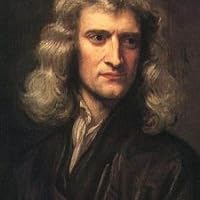Discoveries Quotes
Quotes tagged as "discoveries"
Showing 1-30 of 115

“The best discoveries always happened to the people who weren't looking for them.”
― Amy & Roger's Epic Detour
― Amy & Roger's Epic Detour
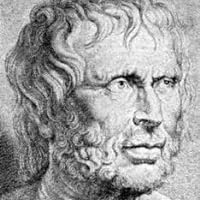
“The time will come when diligent research over long periods will bring to light things which now lie hidden. A single lifetime, even though entirely devoted to the sky, would not be enough for the investigation of so vast a subject... And so this knowledge will be unfolded only through long successive ages. There will come a time when our descendants will be amazed that we did not know things that are so plain to them... Many discoveries are reserved for ages still to come, when memory of us will have been effaced.”
― Natural Questions
― Natural Questions

“Never underestimate the power of thought; it is the greatest path to discovery.”
― Wealth for All: Living a Life of Success at the Edge of Your Ability
― Wealth for All: Living a Life of Success at the Edge of Your Ability

“I always get lost in the library,' he said, 'no matter how many times I go. In fact, I think I get lost there more, the more that I go. Like it's getting to know me and revealing new passages.”
― Fangirl
― Fangirl

“When I write, I make discoveries about my feelings.”
― Writing Magic: Creating Stories that Fly
― Writing Magic: Creating Stories that Fly

“But you can’t be a scientist if you’re uncomfortable with ignorance, because scientists live at the boundary between what is known and unknown in the cosmos. This is very different from the way journalists portray us. So many articles begin, “Scientists now have to go back to the drawing board.” It’s as though we’re sitting in our offices, feet up on our desks—masters of the universe—and suddenly say, “Oops, somebody discovered something!”
No. We’re always at the drawing board. If you’re not at the drawing board, you’re not making discoveries. You’re not a scientist; you’re something else. The public, on the other hand, seems to demand conclusive explanations as they leap without hesitation from statements of abject ignorance to statements of absolute certainty.”
― Space Chronicles: Facing the Ultimate Frontier
No. We’re always at the drawing board. If you’re not at the drawing board, you’re not making discoveries. You’re not a scientist; you’re something else. The public, on the other hand, seems to demand conclusive explanations as they leap without hesitation from statements of abject ignorance to statements of absolute certainty.”
― Space Chronicles: Facing the Ultimate Frontier

“Nothing can be compared to the new life that the discovery of another country provides for a thoughtful person. Although I am still the same I believe to have changed to the bones.”
― Italian Journey
― Italian Journey

“As regards intellectual work it remains a fact, indeed, that great decisions in the realm of thought and momentous discoveries and solutions of problems are only possible to an individual, working in solitude.”
― Group Psychology and the Analysis of the Ego
― Group Psychology and the Analysis of the Ego

“Science, my lad, has been built upon many errors; but they are errors which it was good to fall into, for they led to the truth.”
― Journey to the Center of the Earth
― Journey to the Center of the Earth

“Don't keep forever on the public road,going only where others have gone, and following one after the other like a flock of sheep. Leave the beaten track occasionally and dive into the woods. 'Every time you do so you will be certain to find something that you have never seen before. Of course it will be a little thing, but do not ignore it. Follow it up, explore all around it; one discovery will lead to another, and before you know it you will have something worth thinking about to occupy your mind. All really big discoveries are the results of thought.”
―
―

“We only know a tiny proportion about the complexity of the natural world. Wherever you look, there are still things we don’t know about and don’t understand. [...] There are always new things to find out if you go looking for them.”
―
―

“Deviner avant de démontrer! Ai-je besoin de rappeler que c'est ainsi que se sont faites toutes les découvertes importantes.
Guessing before proving! Need I remind you that it is so that all important discoveries have been made?”
― The Value of Science: Essential Writings of Henri Poincare
Guessing before proving! Need I remind you that it is so that all important discoveries have been made?”
― The Value of Science: Essential Writings of Henri Poincare

“the discoveries don't come when you're looking for them. They come when for some reason you've let go conscious control.”
― A Ring of Endless Light
― A Ring of Endless Light
“The history of Science is not a mere record of isolated discoveries; it is a narrative of the conflict of two contending powers, the expansive force of the human intellect on one side, and the compression arising from traditionary faith and human interests on the other.”
― History of the Conflict Between Religion and Science
― History of the Conflict Between Religion and Science

“Is it possible that the Pentateuch could not have been written by uninspired men? that the assistance of God was necessary to produce these books? Is it possible that Galilei ascertained the mechanical principles of 'Virtual Velocity,' the laws of falling bodies and of all motion; that Copernicus ascertained the true position of the earth and accounted for all celestial phenomena; that Kepler discovered his three laws—discoveries of such importance that the 8th of May, 1618, may be called the birth-day of modern science; that Newton gave to the world the Method of Fluxions, the Theory of Universal Gravitation, and the Decomposition of Light; that Euclid, Cavalieri, Descartes, and Leibniz, almost completed the science of mathematics; that all the discoveries in optics, hydrostatics, pneumatics and chemistry, the experiments, discoveries, and inventions of Galvani, Volta, Franklin and Morse, of Trevithick, Watt and Fulton and of all the pioneers of progress—that all this was accomplished by uninspired men, while the writer of the Pentateuch was directed and inspired by an infinite God? Is it possible that the codes of China, India, Egypt, Greece and Rome were made by man, and that the laws recorded in the Pentateuch were alone given by God? Is it possible that Æschylus and Shakespeare, Burns, and Beranger, Goethe and Schiller, and all the poets of the world, and all their wondrous tragedies and songs are but the work of men, while no intelligence except the infinite God could be the author of the Pentateuch? Is it possible that of all the books that crowd the libraries of the world, the books of science, fiction, history and song, that all save only one, have been produced by man? Is it possible that of all these, the bible only is the work of God?”
― Some Mistakes of Moses
― Some Mistakes of Moses

“She scoured the Earth, wandering and ravenous, looking for doors. And she found them. She found them in abandoned churches and the salt-rimed walls of caves, in graveyards and behind fluttering curtains in foreign markets. She found so many her imagining of the world grew lacy and tattered with holes, like a mouse-chewed map.”
― The Ten Thousand Doors of January
― The Ten Thousand Doors of January

“Sometimes scientific discoveries are like that […]. Once people know something is possible, the pace of new findings increases. (Wylan)”
― Crooked Kingdom
― Crooked Kingdom

“Father Bertrand stood at the window, gazing out through the sea oats at the wild ocean in the distance. There was such peace in something as big and powerful, as independent and majestic as the ocean. U-boats could travel through it and do their dirty work, but they, too, were at the mercy of the hapless wrath of such a body should God decide it was time to speak directly. Some people felt there were still enemy patrols out there, and maybe there were. But there was also Coast Guard, Navy Patrol, and our own variety of covert water travel, he thought. There was no sense in wondering why man had a persistent desire for dominance. It was clear that man would carry on until at that final call, when God would say, “Enough!” And no more.”
― Glorious Christmas
― Glorious Christmas
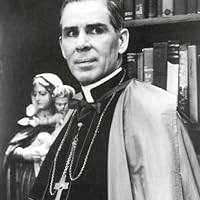
“What is discovered may be abused, but that does not mean the discovery was evil.”
― Life Is Worth Living
― Life Is Worth Living
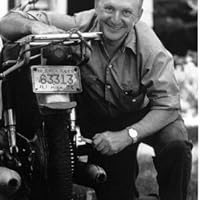
“During periods of root expansion things have always looked as confused and topsy-turvy and purposeless as they do now. The whole Renaissance is supposed to have resulted from the topsy-turvy feeling caused by Columbus’ discovery of a new world. It just shook people up. The topsy-turviness of that time is recorded everywhere. There was nothing in the flat-earth views of the Old and New Testaments that predicted it. Yet people couldn’t deny it. The only way they could assimilate it was to abandon the entire medieval outlook and enter into a new expansion of reason.”
― Zen and the Art of Motorcycle Maintenance: An Inquiry Into Values
― Zen and the Art of Motorcycle Maintenance: An Inquiry Into Values
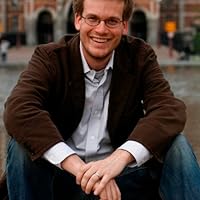
“Scottish scientist, Alexander Fleming discovered penicillin by accident. One Monday morning in 1928, one of his cultures of staphylococcus aureus had been contaminated by a fungus peculium, which seemed to have killed all the staph bacteria. He remarked aloud, "That's funny.”
― The Anthropocene Reviewed: Essays on a Human-Centered Planet
― The Anthropocene Reviewed: Essays on a Human-Centered Planet
All Quotes
|
My Quotes
|
Add A Quote
Browse By Tag
- Love Quotes 97k
- Life Quotes 75.5k
- Inspirational Quotes 72.5k
- Humor Quotes 43.5k
- Philosophy Quotes 29.5k
- Inspirational Quotes Quotes 27k
- God Quotes 26k
- Truth Quotes 23.5k
- Wisdom Quotes 23.5k
- Romance Quotes 23k
- Poetry Quotes 22k
- Death Quotes 20k
- Happiness Quotes 18.5k
- Life Lessons Quotes 18.5k
- Hope Quotes 18k
- Faith Quotes 18k
- Quotes Quotes 16.5k
- Inspiration Quotes 16.5k
- Spirituality Quotes 15k
- Religion Quotes 15k
- Motivational Quotes 15k
- Writing Quotes 14.5k
- Relationships Quotes 14.5k
- Life Quotes Quotes 14k
- Love Quotes Quotes 13.5k
- Success Quotes 13.5k
- Time Quotes 12.5k
- Motivation Quotes 12k
- Science Quotes 11.5k
- Knowledge Quotes 11k

